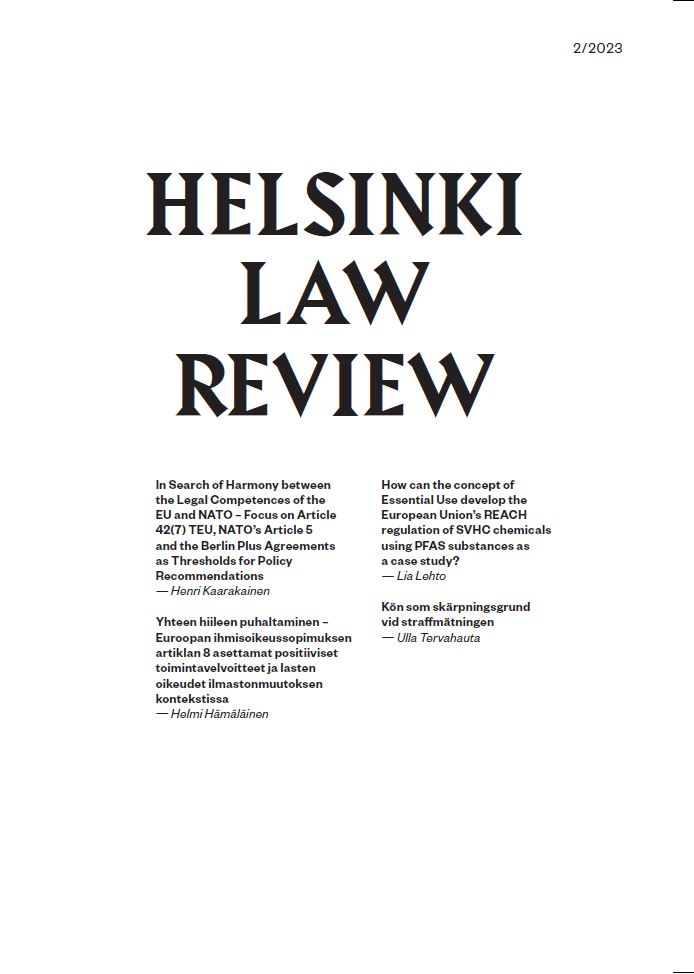In Search of Harmony between the Legal Competences of the EU and NATO – Focus on Article 42(7) TEU, NATO’s Article 5 and the Berlin Plus Agreements as Thresholds for Policy Recommendations
DOI:
https://doi.org/10.33344/vol17iss2pp10-38Avainsanat:
Euroopan unioni, Nato, turvallisuuspolitiikkaAbstrakti
The aim of this article is to answer the following question: understanding that a significant majority of Member States of the European Union are also members of NATO, how should these two organisations’ inter-institutional relationship be understood in terms of competences in the realm of security and defence? I will also take a normative approach as I suggest policies to further promote coherence in actions between the EU and NATO.
I deduce that the future of European collective security is largely dependent on how the Member States decide to develop their military defence capabilities within the EU. The EU– NATO relationship does not necessarily have to culminate in the question of a potential clash of competences; rather, the most fruitful question becomes how to ensure that competences
regarding military defence are exercised in such a way that the Union’s and NATO’s capabilities are deployed in the most effective and cooperative manner.
Furthermore, I argue that a more ambitious approach is needed for the future EU–NATO cooperation. This would require a thorough revision of the Berlin Plus Agreement as well as a transition from its somewhat narrow scope. Hence, I introduce two different pathways forward to revise the existing regulatory framework.



